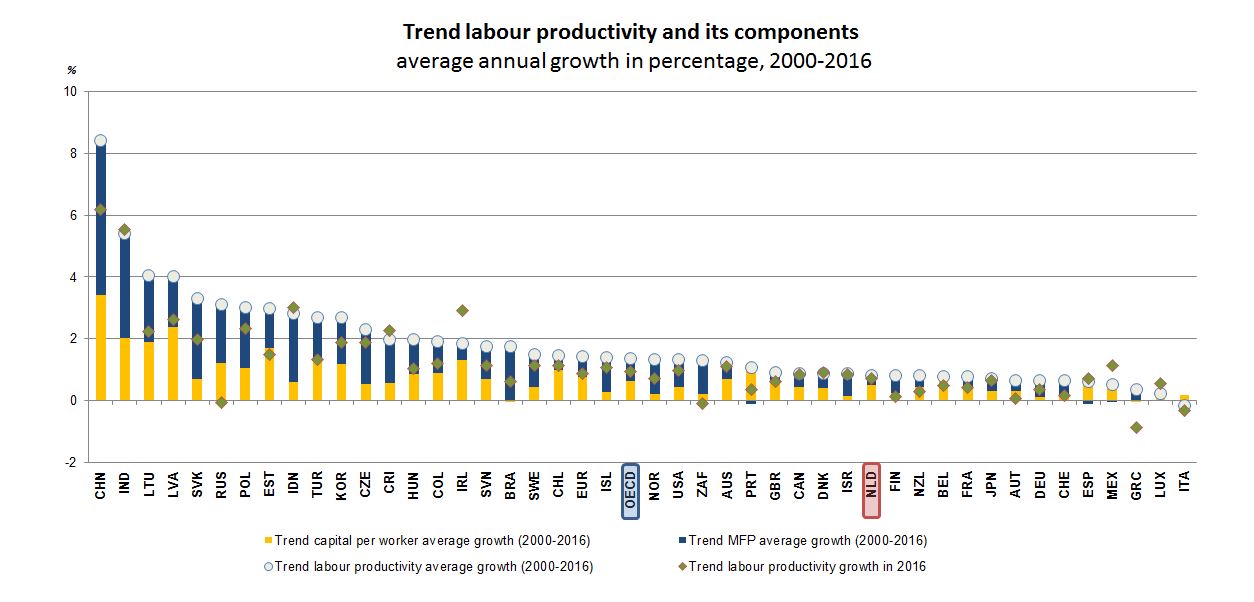Netherlands
 OECD recommendations
OECD recommendations
Productivity growth has been modest. Boosting private sector investment in innovation and business capital, and continuing to improve skills, is key to improve productivity and to ensure growth is inclusive.
- Strengthen innovation by increasing direct public support for R&D.
- Increase competition in the market for SME loans.
- Reduce the gap between permanent and temporary contracts by further lowering the cap on severance payments and ensuring the efficiency of the dismissal system.
- Raise the quality of early childhood education and care further, foster generic skills in vocational education and training, and enhance entrepreneurial skills.
- Further raise teachers’ qualification, in particular in disadvantaged schools.
- Strengthen the provision of public employment services.
 Data
Data
Source: OECD May 2017 Economic Outlook database.
 Key publications
Key publications
CPB (2016, forthcoming), Evidence on Dutch macroeconomic and sectoral productivity performance: Some stylised facts.
OECD (2016), OECD Economic Surveys: Netherlands 2016, OECD Publishing, Paris.
OECD (2015), Innovation, Agricultural Productivity and Sustainability in the Netherlands, OECD Publishing, Paris.
 Productivity - enhancing institutions
Productivity - enhancing institutions
Publicly funded Think Tank: CPB Netherlands Bureau for Economic Policy Analysis (CPB)
CPB was founded in 1945 and is a part of the ministry of Economic Affairs. Its director is appointed by the Minister, in consultation with other members of the government. However, CPB is fully independent as far as the contents of its work are concerned. It also has its own legal mandate and an independent executive and advisory committee. Research at CPB is carried out on CPB’s own initiative, or at the request of the government, parliament, members of parliament, national trade unions and employers’ federations.
Competition authority: Authority for Consumers and Markets (ACM)
ACM was created in 2013 by merging three previous regulators. It is charged with competition oversight, sector-specific regulation of several sectors, and enforcement of consumer protection laws. The ultimate goal is to create a level playing field, where all businesses abide by the rules, and where consumers exercise their rights.
Central Bank research unit: Economics and Research division at De Nederlandsche Bank (DNB)
Research of De Nederlandsche Bank seeks to support DNB’s policy activities through high-quality, policy oriented scientific research on subjects relevant to DNB’s core duties.
Related Documents


